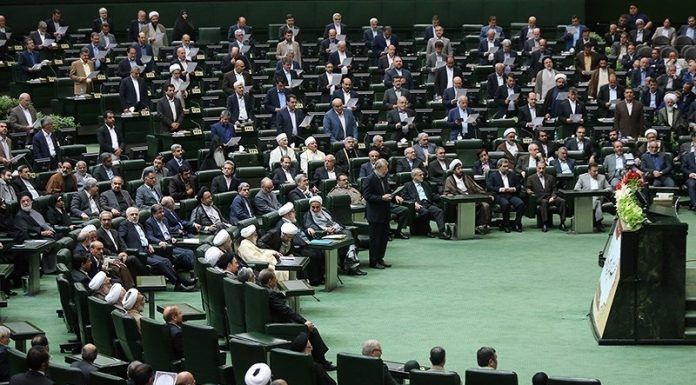By Natasha Phillips
14 Dec – The news this week that Iranian officials have been testing ballistic missiles has taken the verbal sparring between America and Iran to another level. Secretary of State Mike Pompeo urged the United Nations on Wednesday to ban Iran from carrying out further tests. While the terms of the JCPOA invite Iran to abstain from such activities, the agreement does not go so far as to ban them. A December report released by the UN Security Council includes the view, held by Representatives from Israel, France, Germany, the UK and Northern Ireland, that the missile tests are destabilizing and increasing regional tensions. British Foreign Secretary Jeremy Hunt publicly condemned the tests in a government press release, calling them dangerous and provocative.
Iran denies that the tests are in breach of the JCPOA, which requires the missiles to be capable of delivering nuclear weapons. Iran’s Ambassador to the United Nations Eshagh Al Habib told the UN Security Council that the missiles were only capable of delivering conventional warheads rather than any nuclear weaponry.
• As students, municipal workers and oil workers continue to strike, reports from media outlets around the world and civil rights organizations about missing demonstrators, more mass detentions and another wave of arrests targeting new groups are causing concern around the world. Human Rights Watch released information Thursday, on what the charity is calling an escalated crackdown on lawyers. Over the last month, Iran’s revolutionary courts have sentenced at least three lawyers to lengthy prison terms for human rights activism and one other lawyer has since been arrested. Human rights lawyers Qasem Sholehsadi and Arash Keykhosravi were sentenced to six years in prison. Mohammad Najafi, who is also a human rights lawyer, and is currently serving a three-year sentence for exposing torture in prison, has been sentenced to a further 13 years on two other sets of charges. Human rights lawyer Amir Salar Davoudi has been detained since 20 November. Several more lawyers remain in detention, including prominent human rights defender Nasrin Sotoudeh; her husband, Reza Khandan; and Farhad Meysami, who were all arrested for their peaceful protest against compulsory hijab laws. The erosion of basic freedoms inside Iran has led Canada’s lawmakers to urge Justin Trudeau’s government to boycott Iranian officials for human rights violations.
→Link to source
• The state of Iranian children’s human rights went largely unreported on World Human Rights Day. US sanctions and government mismanagement of domestic policies in Iran are hitting children hardest, crippling their access to clean water, food, shelter and education. Some government figures suggest that 80 percent of Iran’s population now live below the poverty line, with youth unemployment as high as 63 percent. UNICEF has been assisting Iran with initiatives to close some of these gaps. However, this has proven rather more difficult over the last twelve months. It’s not just Iranian children inside Iran whose basic rights are in jeopardy. Undocumented Afghan children in Iran are also susceptible to abuses. Research by Iran Human Rights Monitor claims that 80 percent of children in Iran who face sexual exploitation are Afghan child refugees. As one of only a few countries to implement the death penalty as part of its criminal justice system, Iran is also the most prolific executioner of children. The practice is in direct breach of Iran’s obligations under the Convention on the Rights of the Child, but a Reservation embedded into the agreement allows Iran’s government to side-step clauses inside the Convention that conflict with its domestic laws.
→Link to source
• A report prepared by investigators inside Iran has revealed that more than 100 projects undertaken by the Majlis have never been completed in what constitutes a squandering of time and resources. Masoud Pezeshkian, deputy speaker of the Islamic Consultative Assembly (Iran’s Parliament), spoke about the findings as he was interviewed during a television program, explaining that the projects were riddled with problems which had been ongoing for forty years. The findings cement the government’s failure to address corruption and bribery inside Iran. In December alone, the Islamic Consultative Assembly received 365 requests for investigation, with 118 of those confirmed to have been passed on to and approved by parliament. It is estimated that the total cost for carrying out these investigations to date is $30 billion. Projects which never reached fruition included plans to set up Free Universities.
→Link to source
• A group of 200 filmmakers sent an open letter to President Hassan Rouhani and Abbas Salehi, Minister of Culture and Islamic Guidance Abbas Salehi, asking for greater creative freedom. Currently, under government legislation, filmmakers are required to obtain a permit before beginning a project. The measure allows the government to monitor film content and to censor any material they feel is inappropriate or in breach of its policy and laws. In the letter, filmmakers have called the current guidelines patronizing and have asked the government to stop interfering in the creative process, so that independent Iranian cinema can have the opportunity to thrive. The letter has been signed by several internationally acclaimed filmmakers including Nasser Taghvai, who was nominated for the Palme d’Orat the Cannes Film Festival; Dariush Mehrjui, founding member of the Iranian New Wave movement; and Shahram Mokri, whose film ‘Fish & Cat’ won the Orizzonti Award for innovative content at the 70th Venice International Film Festival.
→ Link to source




